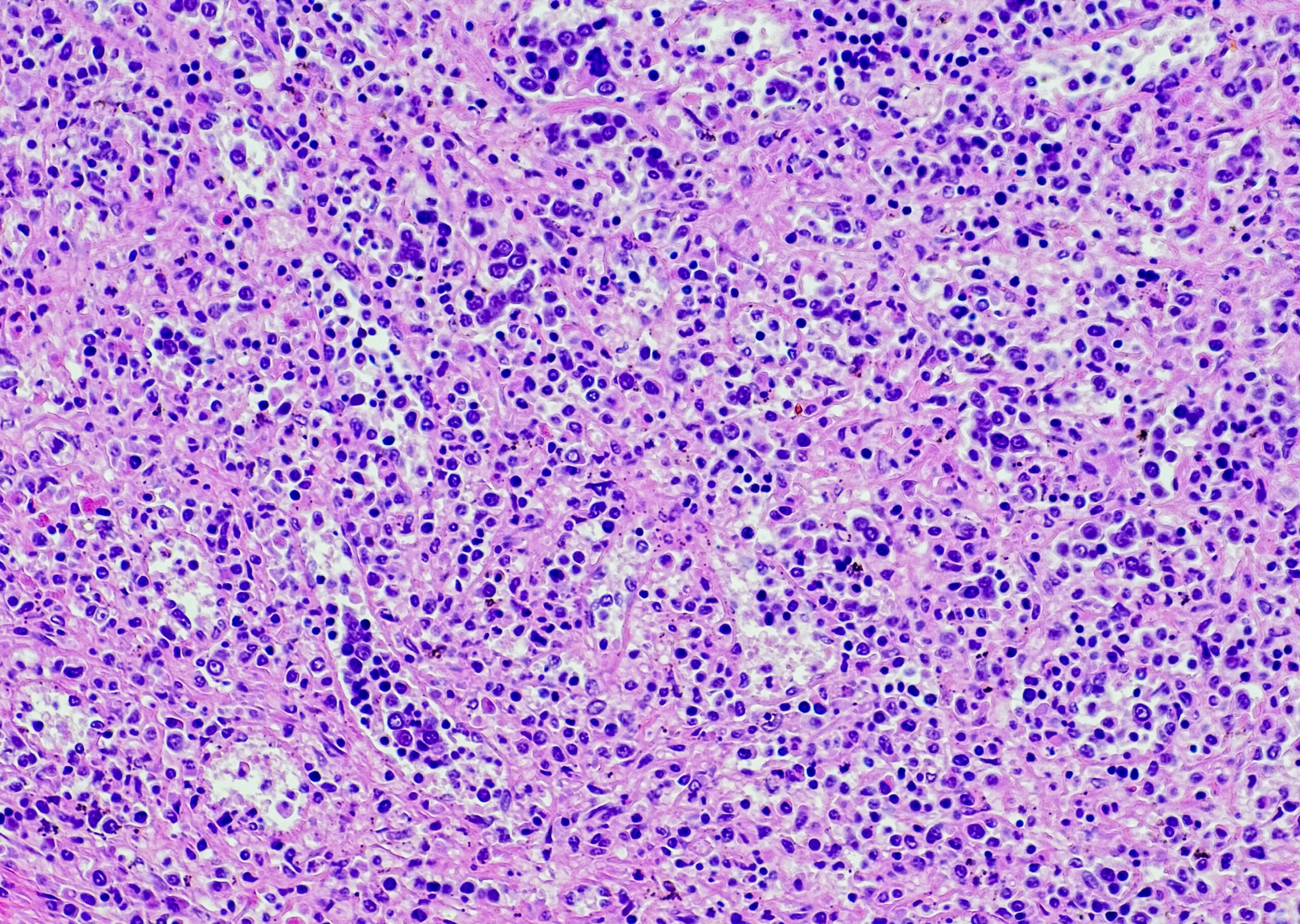Scientific research is constantly being pursued, enabling advances to be made time and again in the therapeutic management of cardiological diseases. The most interesting study results around pericarditis, chronic coronary syndrome, cardiomyopathies or heart failure were the content of an overview lecture.
Oncologic patients undergoing chemotherapy are at increased risk for thromboembolism. Against this background, Prof. Michael Zellweger, MD, Basel, presented a recent study that investigated the use of NOAKs in this clientele. Just over 1000 patients were evaluated for noninferiority of apixaban compared with dalteparin in terms of recurrence of thromboembolic events [1]. The tracking period ran for more than half a year. Indeed, fewer events occurred under NOAK. The risk of bleeding was comparable. From the study results, it can be concluded that NOAKs can also be used well in neoplastic or para-neoplastic thromboembolic events, the expert said.
Recurrent pericarditis under control
An exciting topic was addressed by a phase III trial investigating the use of rilonacept in recurrent pericarditis [2]. Symptomatic patients with recurrent pericarditis are usually adjusted to nonsteroidal anti-inflammatory drugs, colchicine, or corticosteroids. If this cannot achieve a sufficient effect, good advice is expensive. Rilonacept is a fusion protein that blocks interleukin-1 (IL-1) signaling. The drug binds to IL-1α and IL-1β. The study included 61 patients with recurrent pericarditis who had already experienced at least three episodes of pericarditis of at least one day’s duration and had a CRP level ≥1 mg/dl in the week before receiving study medication. In a 1:1 ratio, they received either rilonacept (160 mg injected subcutaneously once weekly) or placebo, while conventional pericarditis therapies were simultaneously scaled back and eventually discontinued. Rilonacept was shown to reduce the risk of pericarditis recurrence by 96% relative to placebo. The proportion of patients with no or minimal pericarditis symptoms was 81% versus 25% at 16 weeks .
Colchicine in chronic coronary syndrome.
The alkaloid of autumn crocus acts as a cytotoxin and can be used as an effective option in acute coronary syndrome. The question arose whether it could also be promising in a chronic form of progression [3]. Randomized approximately 5500 patients to 0.5 mg colchicine or placebo in addition to their therapy. Indeed, patients taking additional colchicine had a significantly lower event rate in terms of cardiac death, infarction, stroke, or subsequent revascularization. “It’s certainly not too early to put this result into practice,” Zellweger says. “But we can look forward to seeing what place colchicine will have in the next guideline.”
A look into the future
Lipoprotein(a) is much more genetically determined than LDL, which is why it is also closely associated with cardiovascular risk. However, an effective therapy for lowering lipoprotein(a) is still lacking. That could change in the future. In a phase II study, a new compound was tested against placebo at different dose levels and was convincing: lipoprotein(a) was reduced by 80% in approximately 460 patients [4]. However, it is not yet clear whether there will also be a prognostic benefit.
Hypertrophic cardiomyopathy in focus
Many patients with hypertrophic cardiomyopathy become symptomatic. However, drug intervention often does not bring the desired freedom from symptoms. Until now, alcohol septum ablation was considered the last resort. Thus, by inducing infarction, myocardial thickness and ultimately gradient are reduced. The new active ingredient mavacamten interferes with actin-myosin traction, thereby decreasing contractility. The active substance was tested against placebo [5]. At baseline, the gradient in both groups was above 80, corresponding to severe aortic stenosis. After just 30 days, this was reduced by more than half to 38.1 in the verum group. This also affected performance in the 6-minute walk test.
Heart failure in the age of SGLT-2 inhibitors.
In the past year, one focus of scientific research has been on SGLT-2 inhibitors. It has been recognized that they are significantly more than just a diabetes medication. This is because they affect not only glucose metabolism, but also the cardio-renal system. In a study of 3730 patients, empagliflozin was shown to have a significantly lower event rate than placebo with respect to the endpoints of death, myocardial infarction, and stroke. In addition, quality of life was also improved in terms of fatigue, dyspnea, and daily activities [6].
Comparably positive results had previously been shown in a study with the SGLT-2 inhibitor dapagliflozin [7]. In it, 4744 patients were studied. In terms of event rate reduction and overall survival, dapagliflozin scores particularly well, the expert said. This is also confirmed by a meta-analysis with regard to all sub-items [8]. Thus, the incidence of death due to cardiovascular disease was reduced with HFrF, and kidney values improved.
Source: Forum for Continuing Medical Education
Literature:
- Agnelli G, Becattini C, Meyer G, et al: Apixaban for the Treatment of Venous Thromboembolism Associated with Cancer. N Engl J Med 2020; 382: 1599-1607.
- Klein AL, Imazio M, Cremer P, et al: NEJM.org.
- Nidorf SM, Fiolet ATL, Mosterd A et al. Colchicine in Patients with Chronic Coronary Disease. N Engl J Med 2020; 383: 1838-1847.
- Tsimikas S, Karawatowska-Prokopczuk E, Gouni-Berthold I, et al: Lipoprotein(a) Reduction in Persons with Cardiovascular Disease. N Engl J Med 2020; 382: 244-255.
- Olivotto I, Barriales-Villa R, Abraham TP, et al: Mavacamten for treatment of symptomatic obstructive hypertrophic cardiomyopathy (EXPLORER-HCM): a randomised, double-blind, placebo-controlled, phase 3 trial. Lancet 2020; 396: 759-769.
- Packer M, Anker SD, Butler J et al. Cardiovascular and Renal Outcomes with Empagliflozin in Heart Failure.
- N Engl J Med 2020; 383: 1413-1424.
- McMurray JJV, Solomon SD, Inzucchi SE, et al: Dapagliflozin in Patients with Heart Failure and Reduced Ejection Fraction. N Engl J Med 2019; 381: 1995-2008.
- Zannad F, Ferreira JP, Pocock SJ, et al: SGLT2 inhibitors in patients with heart failure with reduced ejection fraction: a meta-analysis of the EMPEROR-Reduced and DAPA-HF trials. Lancet 2020; 396: 819-829.
CARDIOVASC 2021; 20(1): 24 (published 2/3/21, ahead of print).












